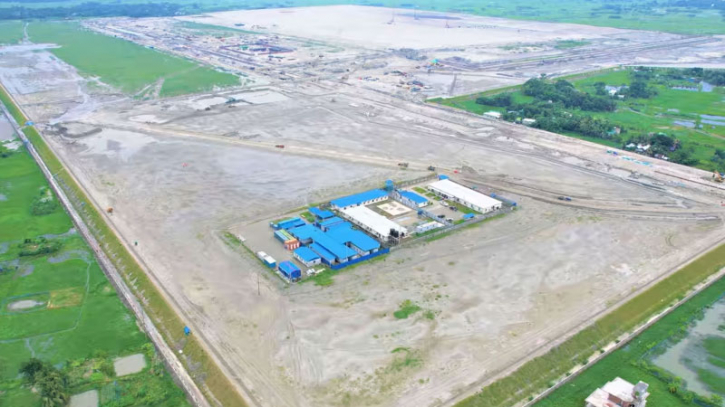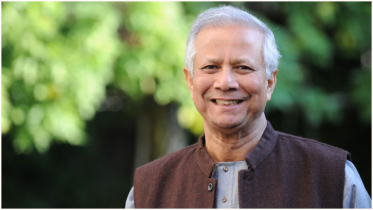Japanese Economic Zone in Bangladesh gears up for production

The Bangladesh Special Economic Zone, jointly developed by the governments of Bangladesh and Japan on 1,000 acres of land in Araihazar, Narayanganj, a neiboring district of Capital city Dhaka, is accelerating its construction efforts to start production in early 2024.
Officials said Singer Bangladesh Ltd, a multinational electronics and home appliance company, which has already started factory construction after leasing 33.4 acres of land in the economic zone, will start production within March 2024.
"Additionally, four other companies have commenced factory construction within the zone, and four more are currently in the contract signing process. Moreover, 22 new companies have expressed interest in making investments in this promising economic zone," Shaikh Yusuf Harun, executive chairman of the Bangladesh Economic Zone Authority (BEZA) told a local media.
BEZA officials said that steps have been taken to provide uninterrupted power supply and other utility facilities to the Bangladesh Special Economic Zone, which is also known as the Japanese Economic Zone.
The officials said that a 230 kV substation will be constructed by the Power Grid Company of Bangladesh in the economic zone. The substation is expected to be completed by 2025.
In addition, the officials said that the government has decided to acquire land quickly for the construction of a gas transmission line from Haripur. The land will be acquired through the deputy commissioner of Narayanganj.
Last month, Beza held a meeting of the Project Implementation Committee (PIC) in this regard.
Saleh Ahmed, Director of Infrastructure Development of the Japanese Economic Zone Project, said a 33 kV power transmission line is currently in operation in the economic zone. Electricity is being used from there. Singer Bangladesh Ltd is setting up a factory using power from it. A 230 kV substation is being built to meet the future demand.
He said that pipes have already been purchased to bring a gas line from Haripur. The land for the gas line must now be acquired.
The PIC meeting discussed that the water retention capacity of the adjacent areas has declined due to soil filling in the economic zone. As a result, waterlogging is likely to occur in the zone if canals are not dug to drain the excess water.
The committee has decided to undertake the re-digging of canals in the vicinity of the economic zone.
Saleh Ahmed said, "We intend to excavate three canals during the upcoming dry season. We have already discussed the plan with the Water Development Board."
As of June 2023, the financial progress of the Japanese Economic Zone project is 85.82%, and the physical progress is almost 100%. Land acquisition activities under the project have also been completed almost 100%.
Saleh Ahmed said the construction work for another Japanese economic zone is going on in Chattogram's Mirsarai.
"The project is in progress at an estimated cost of Tk3,195.81 crore for land acquisition and land development for both the economic zones, which started on 1 January 2017 and ends on 30 June 2024," he said.
"The land acquisition and development cost of the Bangladesh Special Economic Zone is around Tk2,400 crore," he added.
According to officials, the infrastructural development work in the economic zone is scheduled to be completed by June 2025.
Five companies signed land lease agreement
So far, five companies have signed land lease agreements with the Bangladesh Economic Zones Authority to construct factories in the economic zone in Narayanganj.
The companies are – Singer Bangladesh Ltd, 33.4 acres, Rudolf GmbH (Germany), 5 acres, Lion Corporation (Japan), 8.4 acres, Onoda (Japan), 5 acres, NICCA Chemical Co Ltd (Japan), 3.2 acres.
Singer Bangladesh Ltd, a multinational electronics and home appliance firm, is poised to commence production at its $78 million green factory.
Top officials at Singer, along with representatives of its parent company Arçelik – a Turkey-based global industry giant, have revealed that the company's primary focus will be catering to the rapidly expanding local market while also exploring export opportunities from this manufacturing facility.
Rudolf GmbH is one of the largest suppliers of textile chemicals and auxiliaries in Bangladesh.
Lion Corporation has announced that it will establish a joint venture company with Kallol Limited, a Bangladeshi company.
NICCA Chemical Co Ltd has a history of 81 years in manufacturing textile chemicals in 10 countries, mainly in Asia. It has been supplying chemicals to the Bangladesh textile industry for over 20 years.
A bonded warehouse and chemical manufacturing plant will be established in the BSEZ to supply chemicals locally. This will help to boost the growth of the textile industry and the chemical industry in Bangladesh.
Onoda will construct a gas metre assembling factory jointly with Titas Gas Transmission and Distribution Company Limited.
Shaikh Yusuf Harun said that BEZA, JICA, and Sumitomo Corporation will have shares of 24%, 15%, and 61% respectively in the Bangladesh Special Economic Zone (BSEZ).
He expects the zone to attract $1.5 billion in investments and create employment for about one lakh people once it becomes fully operational.
"I am optimistic about the initiatives we have taken over the past decade. The Japanese companies in the Bangladesh Special Economic Zone will invest much more than our target. FDI will increase if the first phase of this zone is launched," he added.
According to Beza sources, companies from various sectors, including automobile assembly, motorcycles, mobile handsets, agro-food, light engineering, garments and pharmaceuticals, will set up factories in the economic zone.
Japanese companies like Toyota, Mitsubishi and Sumitomo have already shown interest in investing here.
Beza is working toward establishing 100 economic zones across the country by 2041.
.png)




